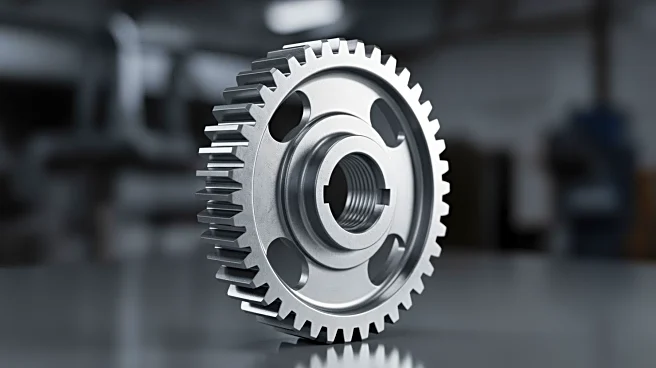What's Happening?
Governor J.B. Pritzker of Illinois has expressed a preference for economic growth over raising taxes or cutting spending. However, David Curtin, a lobbyist for the Technology and Manufacturing Association,
argues that Pritzker's actions contradict his words. The governor has suggested that the Illinois General Assembly might undo tax benefits provided by the federal government's One Big Beautiful Bill Act to address a projected $267 million state deficit. This federal provision allows manufacturers a 100% bonus depreciation of equipment and machinery in the first year, which Curtin believes is crucial for manufacturers. The Governor’s Office of Management and Budget has projected a $449 million reduction in state tax revenue due to automatic conformity with federal corporate tax cuts.
Why It's Important?
The potential rollback of tax benefits could significantly impact Illinois manufacturers, who rely on these provisions to invest in equipment and facilities. The federal depreciation provision is designed to encourage manufacturing growth by allowing immediate write-offs, which reduces inflation risk and offsets the cost of waiting for deductions. If Illinois does not conform to this federal law, it could place the state at a competitive disadvantage compared to others that embrace these tax benefits. This situation highlights the tension between state fiscal policy and the need to support local industries, particularly in a manufacturing-heavy state like Illinois.
What's Next?
The Illinois General Assembly will need to decide whether to maintain alignment with federal tax provisions or pursue changes to address the state deficit. This decision will likely involve weighing the benefits of supporting local manufacturers against the need for increased state revenue. Stakeholders, including manufacturers and economic advocates, are expected to lobby for maintaining the current tax benefits to ensure continued investment and growth in the sector.
Beyond the Headlines
The debate over tax policy in Illinois reflects broader national discussions about the role of government in supporting industry through fiscal measures. The outcome could influence similar policy decisions in other states, particularly those with significant manufacturing sectors. Additionally, this situation underscores the complexities of balancing state budgets while fostering economic growth, a challenge faced by many state governments.









